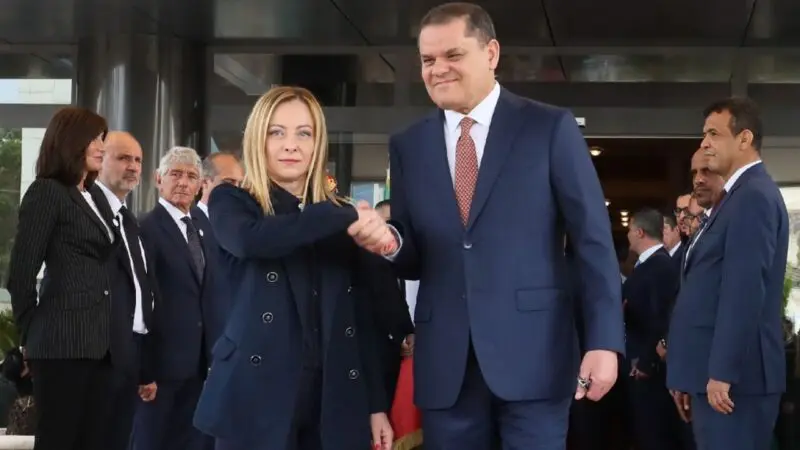Italy makes major power play in Libya

Rome has rolled the dice in Libya. Prime Minister Giorgia Meloni, eschewing the cautious diplomacy of her predecessors, has embarked on a bold strategy of economic engagement with Tripoli, raising eyebrows in European capitals and stirring anxieties across the Mediterranean.
At the heart of this gambit lies a trove of agreements inked with the UN-backed Government of National Unity (GNU), encompassing infrastructure development, renewable energy projects, and agricultural cooperation.
But the real prize, as ever in Libya, is energy. Italy, heavily reliant on imported gas, sees an opportunity to secure access to Libya’s vast reserves and potentially position itself as a key energy hub for southern Europe.
Meloni has shrewdly invoked the legacy of Enrico Mattei, the architect of Italy’s post-war energy independence, framing her approach as a “Mattei Plan” for the 21st century. This resonates with a nation yearning for economic revitalisation and a return to great power status.
However, the echoes of Italy’s colonial past in Libya, combined with the country’s chronic instability, cast a long shadow over this ambitious endeavour.
While the GNU in Tripoli welcomes the influx of investment and diplomatic support, rival factions in the east, notably Khalifa Haftar’s Libyan National Army (LNA), view Italy’s advances with suspicion.
This has sparked concerns that increased Italian involvement could exacerbate existing fault lines and trigger a renewed scramble for resources, potentially drawing in other regional players like France, Egypt, and the UAE.
Adding further complexity is the prominent role of Italian energy giant Eni, potentially with Anglo-American backing.
This raises questions about whether Italy’s pursuit of national interests will align with broader European strategic goals, particularly at a time when energy security and migration flows are top concerns for the EU.
The stakes are high. If Italy’s gamble succeeds, it could pave the way for greater stability and prosperity in Libya, while bolstering Italy’s own economic and geopolitical standing.
However, failure could exacerbate existing tensions, fuel further conflict, and leave Italy entangled in a quagmire.
The coming months will be critical. The GNU’s ability to consolidate its authority, the reaction of rival factions and external powers, and the willingness of Italian businesses to invest in a still-fragile environment will all determine the outcome of this high-stakes game.
As the Libyan saga unfolds, the eyes of the world will be on Rome, Tripoli, and the shifting sands of Mediterranean power.
How to submit an Op-Ed: Libyan Express accepts opinion articles on a wide range of topics. Submissions may be sent to oped@libyanexpress.com. Please include ‘Op-Ed’ in the subject line.
- AU pushes for lasting truce after Tripoli clashes - May 24, 2025
- Libyan entities dispute financial transfer allegations - May 24, 2025
- Amnesty demands release from Sudan’s Tripoli embassy - May 24, 2025


